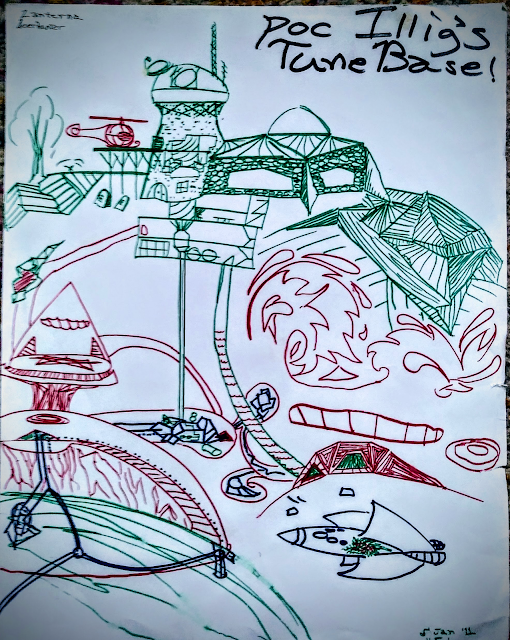For [REDACTED]th Age 2: Dream Demiurge, First Ghost Among Equals, Paladinissimus, The Owlbear, Giants' Shadow Emperor
[For 13th Age and thematically related settings: add these to the set of iconic powers, swap them out for Icons you don't like. The Satrap, for one, does not like the Diabolist, the Orc Lord, the Crusader, the High Priestess...]
Dream Demiurge: Artist and mythographer, architect of dream worlds. The Demiurge took a tax of dream from every sentient, built countless bubble dreamwolrds, many nested one in another, and a vast Oneiric Empire to contain the dreamworlds of all the minds of the world. Domains much attacked by cults of undead and by beings from other worlds. Did he retreat into indefinite prolongation of memory, die, and lose his power to another icon, or to some alien power? Or did he duplicate his mind and will in secret, and secreted his double away to return to activity among the temples and obelisks of his empire? A certain lich most puissant modestly denies being the Demiurge in retirement, but its phylactery is certainly well-hidden at the bottom of an ocean, at the terminus of a long nested labyrinth of bubble worlds. [To enter a bubble dream world, one's dream eidolon must sleep and dream within the domain giving access to the bubble; the next nested bubble is entered sleeping and dreaming in the previous...)
First Ghost Among Equals: an ancient cult forged its own custom afterlife adjacent to the astral plane, the Halls of Endurance, and with spells and prolonged meditation to create a facsimile of the mind, memories, and skills of the adept before their death. [Among clerics and necromancers, this has long been called mere a imitation of the sentient's undying aspect -- the spirit moves on while the imitation remains on or adjacent to the world.] The numinous and music-filled realm of these ghosts is supported by tombs and sanctuaries, and by the rites of living agents. The First Ghost is vast with the deathly esteem of its compatriots in the Halls of Endurance. [there is more to this story]
The First Paladin, Paladinissimus, Most Paladinish Champion
A hero like Arthur, Herakles, David -- a hero of the First Age, slayer of monsters and defender of the weak. Born a prince, life spent on quests and the pursuit of justice; he refused four crowns, but put fellow paladins on the thrones, lands that would become the Dragon Empire. His fame bound many lands in alliance, even friendship. By his second century of life, he was a diplomat, a lawgiver for the Golden Order, and a sort of radiant inspiration for culture. Many legends surround his last years -- returned to fighting monsters, or questing for difficult and obscure matters. Many legends have it that he entered the underdark; others tell of departure to one or another celestial body.
The Owlbear: an owlbear giant that roamed the northern mountains in the Second and Third Ages, and perhaps as late as the Sixth. Druids, elves, and more monstrous Icons attempted without success to gain her as an ally, or a cat's paw, but the owl had waxed most cunning, and ever did she foil the plots of those who would use her.
The Giants' Shadow Emperor (and the shadow cabinet, diwan, shadowministers and generals... The Shadow Emperor was a constitutional partner in the Second through Fifth Ages, the loyal opposition to the Emperor of all Climates, as the theoretically united giants called their monarch, elected from houses among their nobles. Since the Dwarvish defeat of the Old Giant Empire, the post of Emperor has been vacant, yet the Shadow Emperor has absorbed some of the high king's authority. Giants are legalistic and punctilious about constitutional matters, and will not recognize the Shadow Emperor as monarch. The Shadow Court works by influence, intrigue, bribes and blandishments to nudge giant factions into cooperation, or at least parallel action.

Comments
Post a Comment